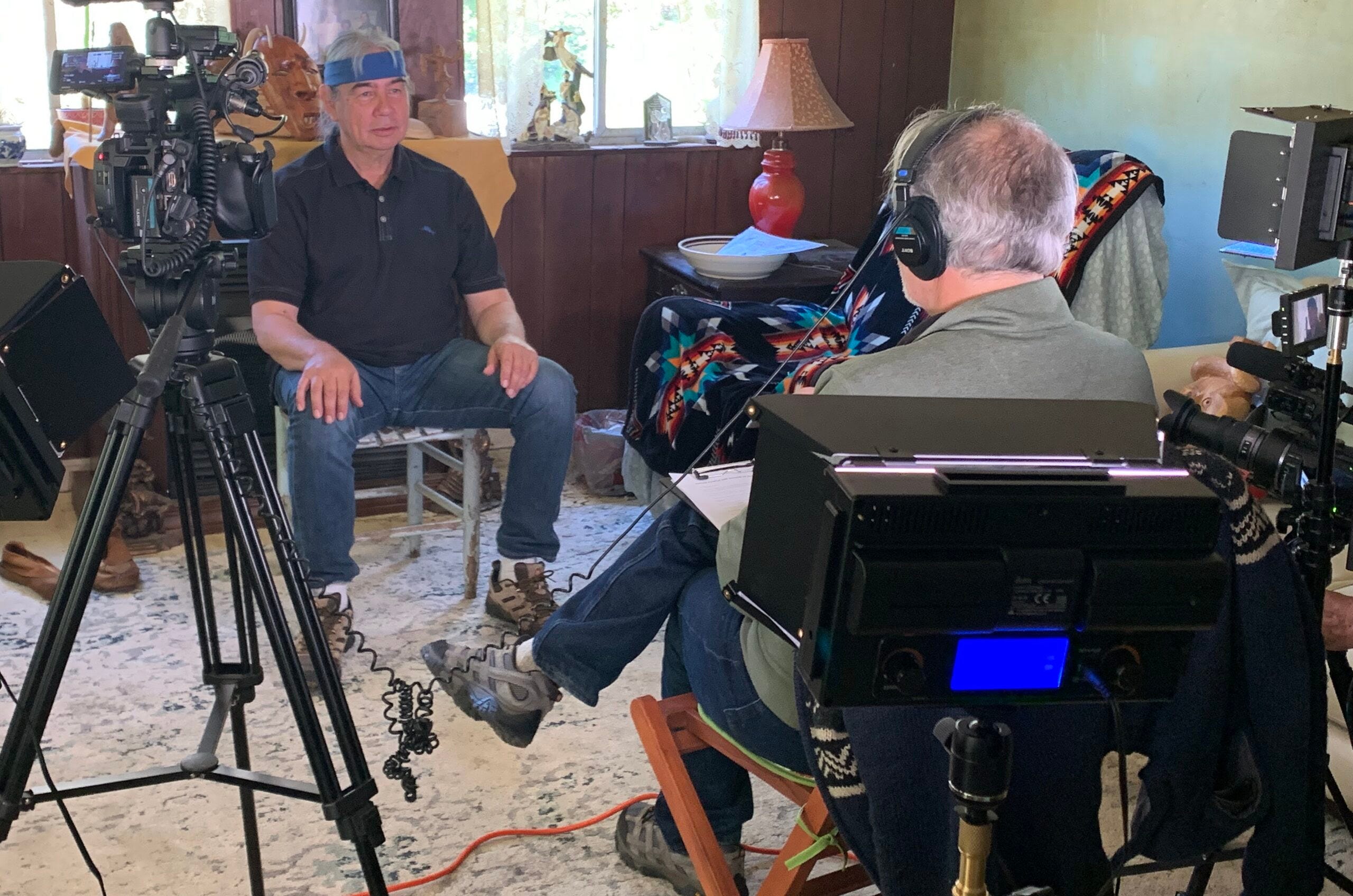Today, the F-word is enjoying a renaissance the likes of which it hasn’t seen since, well, the Renaissance.
Credit: Марина Демешко / Adobe Stock
KEY TAKEAWAYS
Though the F-word was first in print around 1500, etymologists aren’t sure of its origins.
For the next 500 years, it was censored in print and polite society, yet remained widespread in common use.
Today, the word has lost much of its stigma and is being used more to highlight the intensity of a thought.
Kevin Dickinson
The first unambiguous use of the F-word comes from De Officiis, a treatise on moral conduct by Cicero. No, the Roman philosopher didn’t gift English its soon-to-be favorite obscenity. Rather, in 1528, an anonymous monk scrawled this parenthetical into the margins of a De Officiis manuscript: “O d fuckin’ Abbot.”
It isn’t obvious whether the monk’s remark aimed to belittle the abbot or reference his less-than-celibate hobbies. Either way, it seems brazen to us today that a 16th-century monk would scribble such fresh language in a book like some edgelord middle schooler. And it was brazen, too, but not for the reasons you may think.
That lone “d” served as a stand-in for damned — as in “Oh, damned fuckin’ abbot.” This bit of self-censorship reveals that in the Middle Ages, the unmentionable indecency wasn’t the F-word. It was flippantly evoking matters of religious significance. In fact, this medieval mindset still hangs on in our contemporary euphemisms for vulgar language, such as swearing, profanity, and curse words.
A century later, the roles would begin to reverse. One obscenity would transform into a PG-rated curse, while the other would ascend to become the naughtiest of naughty utterances. It’s all part of the weird and mysterious history of this infamous four-letter word.
Where did the F-word come from?
Etymologists aren’t entirely sure where the word originated. It must have been in use for it to appear in our monk’s saucy marginalia, but if we push past 1528 and deeper into written history, things start to get blurry.
In 1503, for example, William Dunbar, a Scottish court poet and ordained priest, penned this dirty ditty: “He held fast, he kissed and fondled, / As with the feeling he was overcome; / It seemed from his manner he would have fucked! / ‘You break my heart, my bonny one.’” In the original Scots, Dunbar’s rhyme scheme was to pair chukkit (“fondled”) with fukkit (“fucked”), showing the word had taken also root in English’s sister language.
Another early instance comes from a 1475 poem written in an English-Latin hybrid: “Non sunt in celi / quia fuccant uuiuys of heli.” Translation: “They [the monks] are not in heaven because they fuck the wives of [the town of] Ely.”
The word certainly goes back further still and we see hints of its usage — and the more relaxed attitudes surrounding it — in the names of people and places. A favorite picnic spot could be labeled “Fuckinggrove” on the map and no one would think twice about it. And people from the 1200s signed documents with monikers such as “Henry Fuckbeggar” and “Simon Fuckbutter.”
In fact, Chester County documents reveal that between September 1310 and May 1311, one “Roger Fuckebythenavele” was called to court three times before being “outlawed.” (Historians can only guess as to his crimes.)
From there, the etymological trail goes cold. People have proposed various theories regarding the word’s origin, some more absurd than others. One popular theory is that the word is an acronym for “fornicate under the command of the king.” But this idea supposes that everyone in Merrie England went around fornicating until the king commanded them to do it so often they had to coin a shorter term. Unlikely.
In Nine Nasty Words: English in the Gutter, a book this article is greatly indebted to, linguist John McWhorter offers two more likely scenarios. The first is that our F-word comes from an Old English one now lost to us. Neither a gratifying nor surprising answer. As McWhorter points out, we only have about 34,000 Old English words, compared to the roughly 225,000 you’ll find in a standard desk dictionary. What’s more, the Old English texts that have survived are mostly official or religious documents.
Another possibility is that the word was on loan from another language. Various Germanic words have been floated as possible contenders, among them ficken (meaning “to make quick movements to and fro, or flick”). McWhorter suggests another candidate in the now obsolete Norwegian word fukka.
As this theory goes, the Vikings’ invasion of England wasn’t a hit-and-run operation. Many stayed and settled. They started farms, took English wives, and became part of the culture. Naturally, their word for such a common activity came with them and blended into the local vernacular. This theory may also explain Dunbar’s fukkit as the Vikings heavily settled Northumbria (a kingdom that once consisted of the North of England and south of Scotland).
“We will likely never be absolutely sure which of these origin stories is the right one,” McWhorter writes. “Overall, however, our word shall likely ever remain the mysterious little fuck that it is, turning up off in a corner of the lexical firmament sometime after the Battle of Hastings.”
A big effing deal
Even after the 16th century, the English language doesn’t use the word much — in print at least.
“In the 1500s and before, it was, to be sure, naughty,” McWhorter writes. “[However] since the Renaissance, fuck has been the subject of a grand cover-up, the lexical equivalent of the drunken uncle or the pornography collection, under which a word known well and even adored by most is barred from public presentation.”
For instance, the word didn’t appear in an English-language dictionary until 1966 when The Penguin Dictionary broke the taboo. The American Heritage Dictionary wouldn’t offer entry until 1969, and even then not without also printing a “clean” edition to compensate. A notable exception to this rule was Queen Anna’s New World of Words, an Italian-English dictionary printed by John Florio in 1611.
One reason for the word’s conspicuous absence has to do with the nature of the written word. For most of history, the majority of people could neither read nor write. Those who could were often the social elite, and they wrote for other elites. To further separate themselves from the bawdy riffraff, they coded their language to mark their status. One way to do that was to not use the obscene language associated with the lower classes — except maybe in omission, and always from the safe distance of the moral high ground.
As print and literacy became more widespread, these norms remained firmly entrenched. Most historical examples come to us from underground entertainment, such as folk songs, erotic comics, and pulpy literature.
However, the social, cultural, and artistic aftershocks of the two World Wars began to slowly nudge profanity back into print. In the 1924 play What Price Glory?, the soldiers swore like, well, soldiers, but without dropping a single F-bomb. Ernest Hemingway included damn in The Sun Also Rises (1926) but had to settle for the oblique muck in For Whom the Bell Tolls (1940). And Norman Mailer famously substituted fug in The Naked and the Dead (1948).
The watershed moment wouldn’t come until 1960, with the obscenity trial of Lady Chatterley’s Lover. D.H. Lawrence’s now-revered novel was initially banned or censored across the English-speaking world for its use of the word and explicit sexual descriptions. In the U.K., Penguin Books, the novel’s publisher, was brought to trial for violating the Obscene Publications Act 1959. The prosecution argued the novel would “deprave and corrupt” readers, but the jury found Penguin not guilty on account that such literature fell under the act’s public good provision.
Other courts soon followed, and the novel is today viewed as a milestone in the counterculture movements that would usher in our more permissive social mores.
Evolution of the F-word
Since then, things seem to have come full circle. Once unutterable in polite society, the word has lost much of its stigma and can now be heard in the office, on TV, and even at the family dinner table (assuming the kids are playing in the other room).
From The Big ThinkAs linguist Valerie Fridland points out, it is 28 times more common in literature today than when Lawrence wrote of Lady Chatterly’s illicit affair — to say nothing of its marquee status in titles. It’s the most tweeted cuss word by Americans, and in a truly stunning upset, it recently surpassed bloody as the favored obscenity among the British
“This suggests that something has changed over the decades that has made such language less offensive, at least to a significant portion of the population,” Fridland writes. “And, even more than just an uptick in use, what is especially striking is how omnipresent even more offensive ‘bad’ words have become.”
A 2023 study looked at the word’s usage among British teens over several decades. It found that the word has undergone “delexicalization,” the process by which a word expands its range of contextual uses different from its original meaning. In this case, the word has become more functional than definitional. Much like that anonymous monk of yore, we use it today for that kick of expressive spice.
Fridland, who was not involved in the research, offers the example, “It’s fucking hot in here.” This usage no longer carries any literal meaning. It’s there to amplify and emphasize just how hot it is. She writes: “By picking a word that has some shock value and takes a bit of verbal risk owing to its associated taboo use, it carries more impact. […] As swear words get put to work in less traditional/literal ways, their negative connotations are less likely to be the first thing that comes to mind upon hearing them.”
Even so, in some settings or groups, the word hasn’t completely lost its edge, and that’s for the best. We need words that give our expressions that emotional oomph and inform others just how disgusted, ecstatic, or angry we are. We need to be able to signal when our social hair is down or that we’re part of the in-group. And sometimes, we just need an easy way to distinguish the pastors from the shock jocks.
Should the day ever come when the word no longer fulfills these roles — hitting instead with all the impact of a “golly gee” — you can bet another one will step up to take its place. Until then, it will continue to evolve in our language in ever-resourceful and interesting ways.



